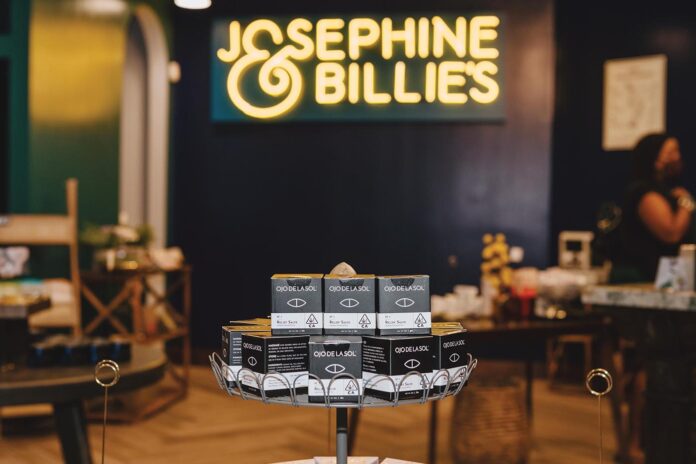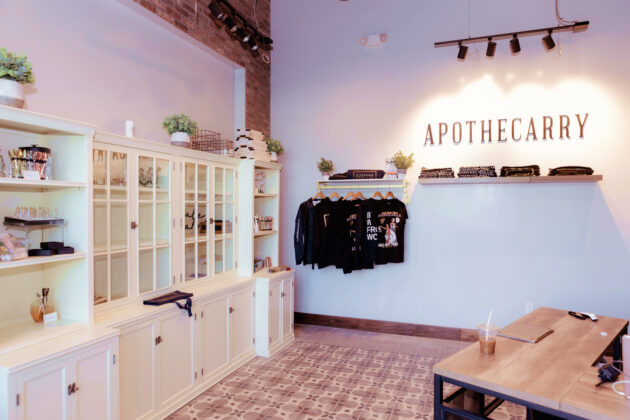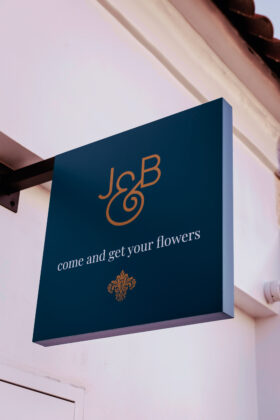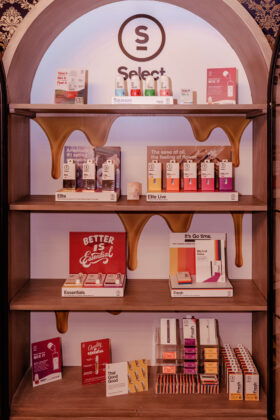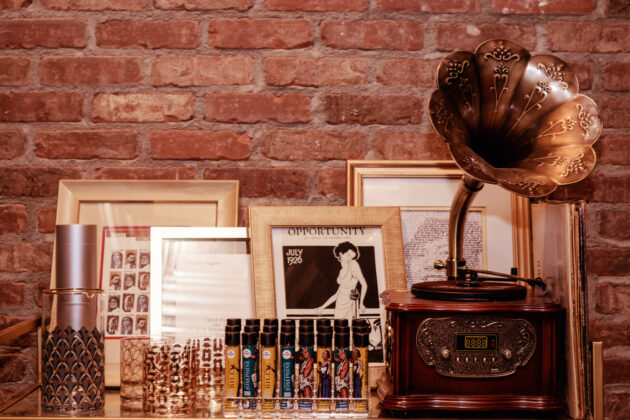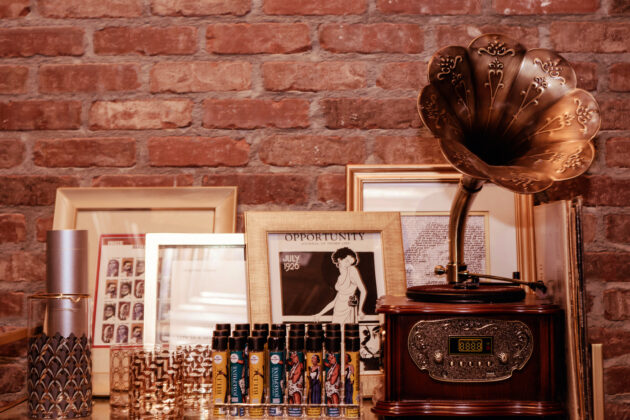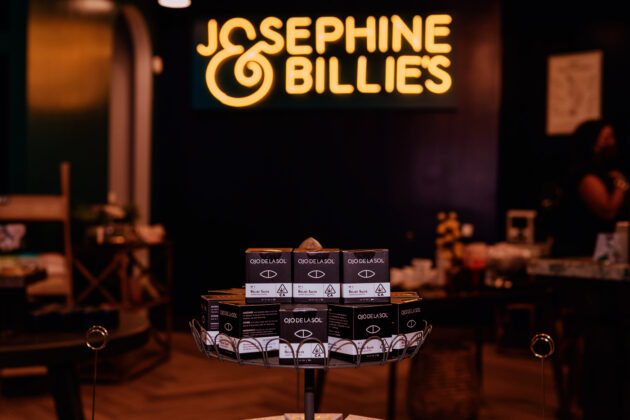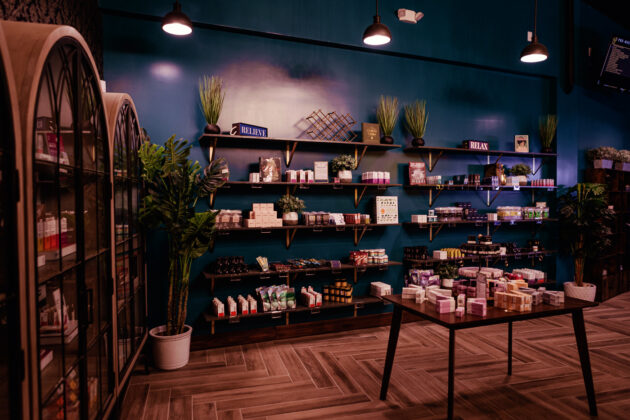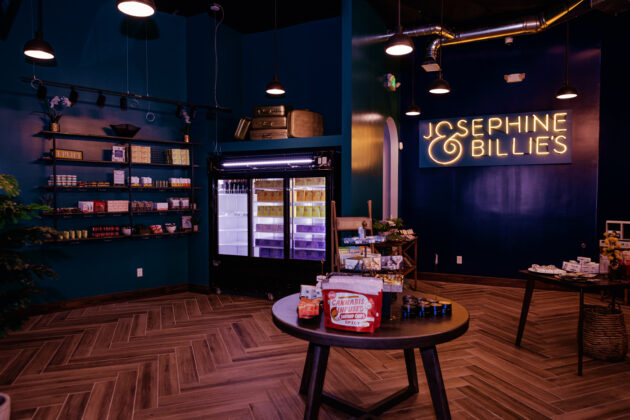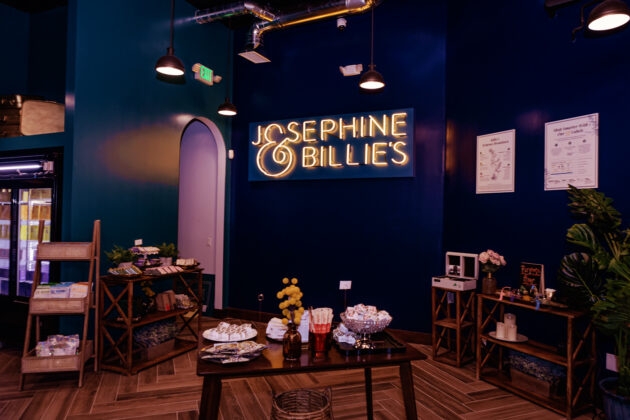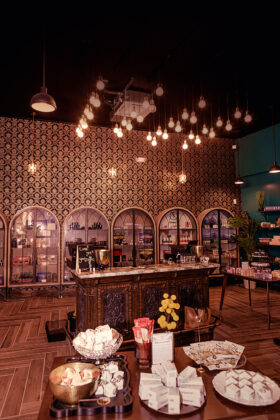National media hype surrounding a new dispensary opening typically is reserved only for when cannabis plants a big green flag somewhere audacious — like MedMen’s location on Fifth Avenue in New York.
Yet when a small, Black-owned store in a nondescript strip mall in central Los Angeles opened its doors last November, a wave of mainstream press followed. As one of the nation’s first dispensaries owned and operated by Black women, Josephine & Billie’s (J&B) is an overdue milestone for an industry still struggling to create social equity at the ownership level. J&B also marks a small victory for Los Angeles’s ailing social-equity program, which has spluttered and largely failed to live up to its promise of creating opportunity.
Nods to the past
Named after Josephine Baker and Billie Holiday, two pioneering Black women persecuted for their cannabis use, the 1,500-square-foot store is styled after “tea pads” — underground gathering places where Black and Brown communities socialized in the 1920s and ’30s, often while consuming cannabis.
Founders Whitney Beatty (chief executive officer) and Ebony Andersen (chief operating officer) wanted J&B to be a space “where women would feel comfortable enough to ask questions like, ‘How’s the plant going to affect me?’ ‘How am I going to feel?’ ‘How will it make my life better?’”
A Detroit native who moved to L.A. to work in the entertainment industry, Beatty unexpectedly discovered cannabis in her late twenties after growing up amid the war on drugs under the Regan-era mantra “just say no.” Using the plant as an alternative to prescribed anxiety medication quickly showed her education — particularly aimed at women of color — was missing in the industry.
“A lot of the time, retail stores might look the part, but they don’t do a lot of talking about the plant, how to use it, or how to make it work for you in your life,” she said. “And we felt like that was a big hole that needed filling.”
J&B reimagines the popular speakeasy bar concept for cannabis retail. In the snug waiting area, the receptionist asks for a password (“Billie sent me”) before going through official ID-verification procedures. Like some other experience-driven stores, J&B utilizes the waiting area to showcase merchandise and accessories while initiating guests into the novel experience that awaits. The foyer is replete with pipes, elegant joint holders, and a spread of SKUs from Beatty’s other company, Apothecarry, which makes a luxury line of lockable humidors and stash bags for keeping herb fresh and safe.
After check-in, guests are escorted through heavy velvet drapes and onto the shop floor, an open-plan space with high ceilings, shelves of products framing the room, and a central point-of-sale island crafted from a found antique bar. Herringbone floor, neon signs, hardwood shelves, and tables filled with placemaking tchotchkes and decorations keep guests locked in the Prohibition era as they shop for post-prohibition cannabis.
A focus on education
Like many design-forward dispensaries in the recreational era, J&B keeps cannabis education at the core of its business philosophy. Each customer is paired with an advocate (J&B’s preferred term for budtender) who engages in a preparatory demonstration at the Terpene Bar, a spread of five colored perfume bottles containing some of the most common terpenes found in cannabis. Above the ornate bottles, on the royal blue walls, a terpene breakdown gives customers an in-depth description of the prominent cannabis constituents and how they correspond to specific effects.
“We were trying to determine the best way for us to be able to give our customers the right information and insight, and we knew it was never going to be using ‘sativa’ and ‘indica,’” said Beatty.
J&B’s education component continues on the walls and shelves throughout the store, where beautifully designed plaques and posters do their best to wipe the slate clean of myth and misinformation and introduce customers to a new way of looking at the plant. Each product in the store has a corresponding information card detailing potency (depicted humorously, if ironically, as partially filled flutes of champagne), top terpenes, intended effect, THC and terpene ratios, and the price out the door.
Throughout the store, products are arranged into familiar effect categories (focus, energy, uplift, relieve, relax), and a handful of branded, arched shelves provide special placement for marquee partners like Kiva, Monogram, and Caliva. (The latter two are owned by The Parent Company, an early investor in J&B.)
Customers are allowed and even encouraged to pluck products off the shelves and inspect the packaging, an increasingly common attribute of open-plan, experience-forward stores. “We’re used to not being able to touch things or physically interact with the product in any way,” said Beatty. “So being able to hold and engage with these products has become a big value-add for our customers.”
One of the store’s top-performing brands is Ball Family Farms, the L.A.-based social-equity flower producer that made a huge splash at the recent Hall of Flowers with its fictional-fighter-inspired strains like Clubber Lang, Bruce Leroy, and Miyagi Do. The store’s top-selling items are the Josephine & Billie’s house pre-rolls, a collaboration with Ball Family Farms, and Beatty said more J&B-branded products are coming this year.
Social equity brands
Uplifting and spotlighting brands owned by people of color and women is a core tenet at J&B, and the store has an admirable number of such brands on its shelves, including Sundae School, dreamt, Kush Queen, SF Roots, and Tical. Yet despite the pronounced focus on supporting social equity businesses and forging important conversations with women of color, Beatty insists the store is for everyone, and this is reflected in its customer base.
“Even though we designed it with women and women of color in mind, we have had a lot of men come in and say they love it,” Beatty said. “It truly makes my heart warm to see the diversity that walks through our doors every day.”
Adjacent to the shop floor is the lounge room, which Beatty said will be utilized for education sessions, patient appreciation days, and small branded events once gatherings return to relative normalcy. With its velvet couches, ornate flocked wallpaper, and exposed brick, the space is a majestic pastiche of eras, designed to make visitors feel comfortable enough to ask questions and discuss any medical reasons they may have for seeking cannabis.
Despite opening its doors as the coronavirus’s omicron variant tore through the country, the store was an immediate success. Not only does J&B attract a loyal local crowd appreciative of the selection and prices, but the dispensary also has drawn legions of socially conscious consumers willing to travel across the city to be patrons of something special.
“We’ve only been open for about two months and we already have a steady flow of local people coming in every week, as well as people who have driven past twenty dispensaries to get to ours,” Beatty said proudly. “That’s really exciting, because they see the value in what we’re doing, the education we’re bringing, and what our advocates do.”







